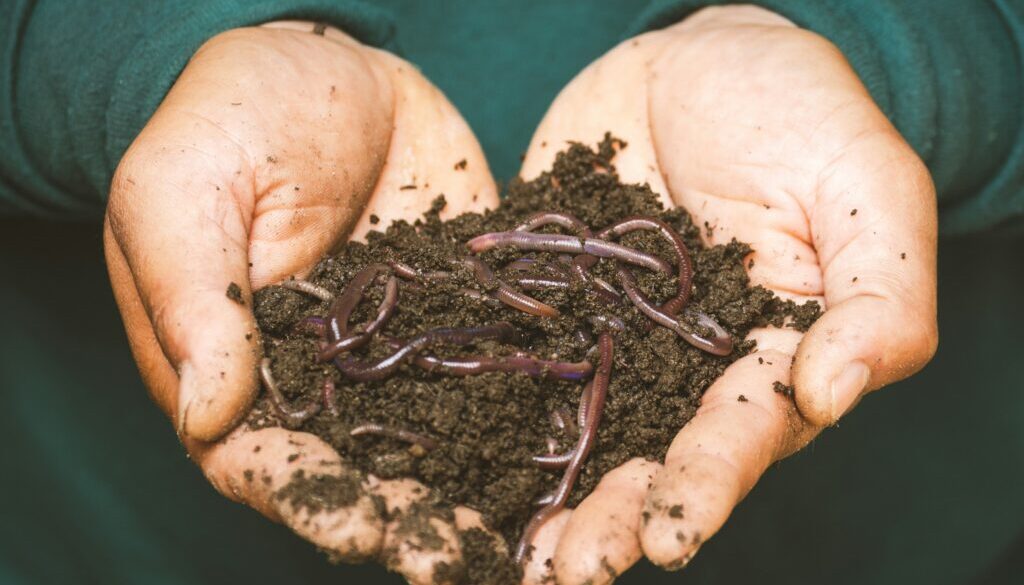Pesticide-treated seeds harm earthworms, study finds
Commonly used pesticides pose a toxic threat to earthworms, creatures considered crucial for the health of soil used to grow crops, according to a new study published Wednesday.
The study builds on evidence that a class of insecticides called neonicotinoids, or neonics, are harming a range of species important for planetary health. Neonics have been banned in many countries but are popular with farmers in the United States.
The authors of the new study said they found that when earthworms were exposed to four different types of neonics, as well as the fungicide difenoconazole, they suffered damage to their mitochondrial DNA and gained significantly less weight than earthworms not exposed to the chemicals. The pesticides were especially damaging when the worms were exposed to a neonic plus the fungicide in combination.
The findings were published in the journal Environmental Science & Technology Letters.
“We need to re-evaluate the toxicity of neonics and the synergistic effects of neonics and systemic pesticides in those non-target organisms when they are applied to soil simultaneously,” said Chensheng (Alex) Lu, a professor at Southwest University in Chongqing, China and an author of the study.
“The contribution of earthworms to crop yields is as essential as pollination done by honey bees,” he added. “A healthy soil is simply not possible without the presence of earthworms.”
To understand how neonics and difenoconazole affect earthworms, Lu and colleagues exposed groups of young earthworms in a laboratory environment to both individual and combined pesticides at concentrations equivalent to residues from pesticide-treated seeds that they would encounter in a farm field.
After 30 days, the scientists weighed the worms and assessed damage to their mitochondrial DNA. Since the DNA can’t repair itself as well as the DNA in a cell’s nucleus, it provided a telling picture of how the pesticides affected earthworms that encountered them, according to the scientists.
Juvenile worms in soil treated with a single pesticide gained 30-80% less weight compared to a control group in untreated soil, while worms exposed to both a neonicotinoid and difenoconazole ended up even skinnier at the end of the study. The researchers consistently observed mitochondrial DNA damage in worms exposed to either a single pesticide or combinations of pesticides.
The study’s biggest limitation was that it took place in a lab rather than out in nature, acknowledged Lu, who said that restraining the worms in small boxes was necessary to measure the toxic effects of the chemicals to which they were exposed.
The findings support previous research that suggests exposure to neonics can damage earthworm DNA and that earthworms tend to avoid soil contaminated by neonics, with negative reproductive consequences. Exposure to neonicotinoids also damages mitochondrial DNA in honey bees, potentially helping to explain a phenomenon called “colony collapse disorder” in which the bees disappear from their hives in the winter, according to a 2020 study. Neonics also negatively impact human mitochondrial DNA, according to a study published last fall.
Both difenoconazole and neonics have attracted recent scrutiny. Following a lawsuit from the Center for Food Safety (CFS), the US Environmental Protection Agency (EPA) last July withdrew its interim approval of difenoconazole while it completes further evaluations of the fungicide, which is sprayed on many fruit and vegetable crops.
CFS had alleged that the EPA’s initial decision failed to protect endangered species including the California condor and the whooping crane.
Neonics have been shown to harm pollinators such as honey bees, as well as various organisms responsible for health soil, including insects, nematodes, and beneficial bacteria. Last year, more than 60 nonprofit groups submitted a petition to the EPA calling for the agency to reconsider the way it regulates these pesticides.
In October, California became the 11th state to pass laws partially restricting neonic use. Stronger laws in Nevada, New Jersey, and Maine prohibit neonics from being used outdoors altogether.
(Featured image by sippakorn yamkasikorn on Unsplash.)




